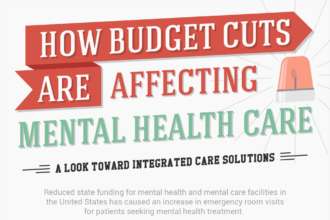I was highly intrigued by an article on ZDNET today. It was Steve Ranger’s piece on “Predicting the next decade of tech: From the cloud to disappearing computers and the rise of robots”. For anyone interested in technology, it’s a good read.
I was highly intrigued by an article on ZDNET today. It was Steve Ranger’s piece on “Predicting the next decade of tech: From the cloud to disappearing computers and the rise of robots”. For anyone interested in technology, it’s a good read. I particularly enjoyed the back half of the article and its focus not on the predicted hardware and software breakthroughs of the next decade, but rather on what is all too often forgotten–how people factor into the equation.
 I won’t belabor the technology predictions. Those are well enumerated in the ZDNET article complete with the obligatory Gartner Hype Cycle. But I do want to elaborate a bit on the human factors. The article quotes one of my Microsoft colleagues, Dave Choplin, who holds the title of chief envisioning officer. He says, “What we really need to figure out is the relationship between humans and technology, because right now humans get technology massively wrong.” He goes on to reflect on the fact that most people use technology to do things the way we’ve always been doing them. He says the point of new technology is to enable us to “do things fundamentally differently”.
I won’t belabor the technology predictions. Those are well enumerated in the ZDNET article complete with the obligatory Gartner Hype Cycle. But I do want to elaborate a bit on the human factors. The article quotes one of my Microsoft colleagues, Dave Choplin, who holds the title of chief envisioning officer. He says, “What we really need to figure out is the relationship between humans and technology, because right now humans get technology massively wrong.” He goes on to reflect on the fact that most people use technology to do things the way we’ve always been doing them. He says the point of new technology is to enable us to “do things fundamentally differently”.
While the focus of the ZDNET article isn’t about healthcare, I find what is being said is perhaps more true of healthcare professionals and the healthcare industry than perhaps most other sectors of the economy. In healthcare right now, the very ground underneath those who work in the industry is shaking violently. Clinicians are being asked to improve quality, see more patients, and lower the costs of care. Payment systems are shifting away from volume (getting paid for what you do) to value (getting paid for the quality outcomes you achieve). That means clinicians must be able to measure every thing they do and continuously improve upon it without adding to cost. The only way to do that is to also improve workforce productivity, and that likely involves an increasing reliance on technology. However, as Mr. Choplin points out, most people think productivity is just about improving processes when instead it should really be leading us to better outcomes.
 I’ve been saying for some time now that information technology has matured to the point where it can actually add tremendous value in health and healthcare. It’s far from perfect, of course, but I don’t think it is technology that holds us back. What holds us back are the human factors. As stated by ZDNET, “the big stumbling block to IT’s bright future in any organization is their own staff and their ways of working. Figuring out where to invest in technology is a lot easier than persuading staff, and whole organizations, to change how they operate.” I find that particularly true in healthcare and especially for physicians. We spend our young adulthood immersed in the scholarly pursuit of a medical degree. We take four or more years in specialty training. We are indoctrinated in how to approach the patient, assimilate information, organize our thoughts and reach a diagnosis. It’s all about following a certain process, a definitive kind of workflow. And, all too often today when we deploy technology into clinical workflow we are using it simply to “do things the way we’ve always been doing them” instead of doing things “fundamentally differently”.
I’ve been saying for some time now that information technology has matured to the point where it can actually add tremendous value in health and healthcare. It’s far from perfect, of course, but I don’t think it is technology that holds us back. What holds us back are the human factors. As stated by ZDNET, “the big stumbling block to IT’s bright future in any organization is their own staff and their ways of working. Figuring out where to invest in technology is a lot easier than persuading staff, and whole organizations, to change how they operate.” I find that particularly true in healthcare and especially for physicians. We spend our young adulthood immersed in the scholarly pursuit of a medical degree. We take four or more years in specialty training. We are indoctrinated in how to approach the patient, assimilate information, organize our thoughts and reach a diagnosis. It’s all about following a certain process, a definitive kind of workflow. And, all too often today when we deploy technology into clinical workflow we are using it simply to “do things the way we’ve always been doing them” instead of doing things “fundamentally differently”.
Fortunately, many healthcare organizations around the world are beginning to use technology to do things differently. They are getting value from the digital data they are capturing by applying advanced analytics to deliver actionable insights to patient care. They are embracing mobile devices and applications to improve clinical workflow. They are applying universal communications technologies to deliver care outside the walls of the organization. They are using these same technologies to train healthcare professionals how to think and do things differently, including how technology can improve the ways care teams communicate and collaborate. They are embracing cloud technologies to streamline IT resources and focus more of those limited resources on that which healthcare systems are all about—providing care to patients and increasingly, focusing on ways to improve population health and disease prevention.
If you are deploying technology in your healthcare organization, ask yourself first if your people are ready. If they are not, you are setting the stage for failure. Getting value from technology goes hand in hand with having a workforce that has been well prepared and is ready to improve the changes that technology will bring about.







